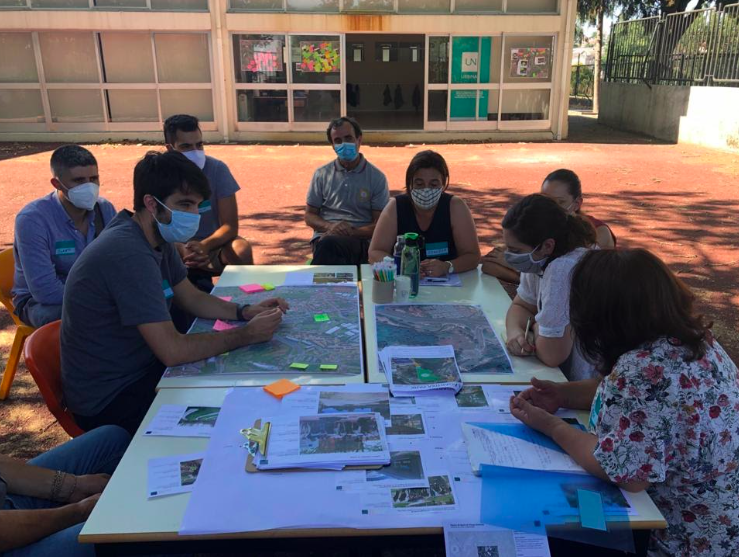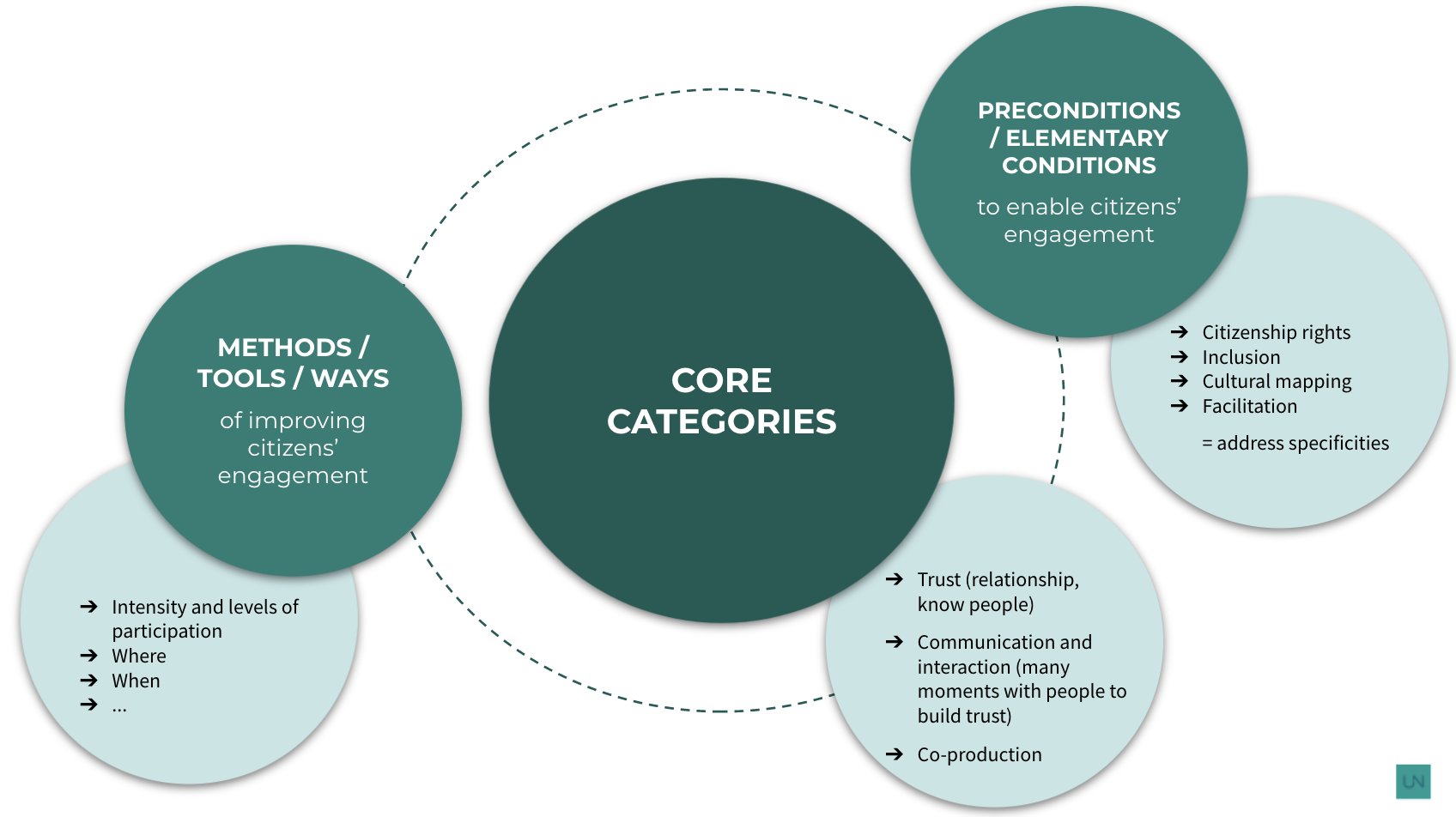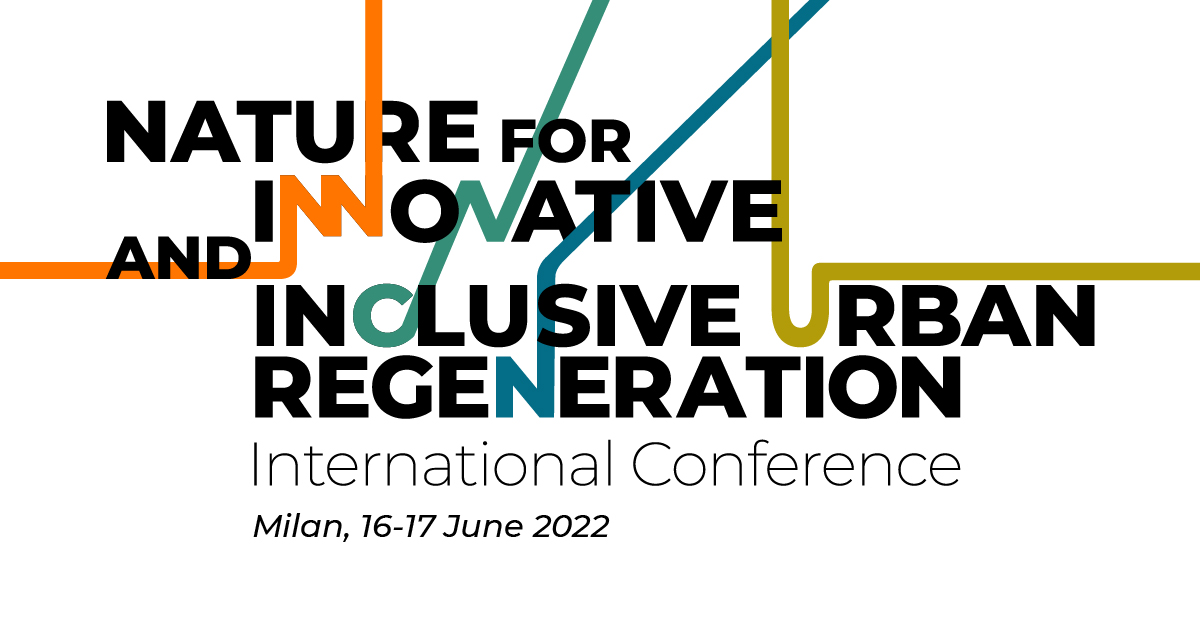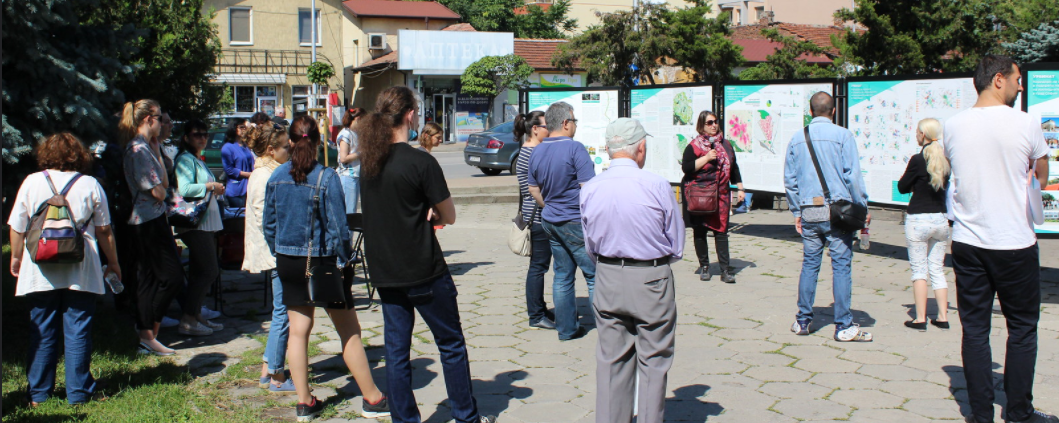URBiNAT cities through the lens of the COVID-19 pandemic
As COVID-19 tore across Europe and the world it struck at the heart of our societies, taking lives and revealing in a harsher, more uncompromising light the extent of social, economic and environmental disparities within our communities. The pandemic spread indiscriminately. Yet, it is clear that factors such as income level, housing type, neighbourhood, and other socioeconomic variables would (once again..) determine starkly different levels of exposure or risk. Individuals, families and communities have not suffered the effects of the pandemic in the same way. But what does this really mean? How have people coped with the restrictions imposed by COVID-19 mitigation policies? What lessons can we draw from this period?
The seven URBiNAT cities – Sofia, Nantes, Porto, Brussels, Siena, Høje-Taastrup and Nova Gorica – shared their views on the repercussions, challenges, responses and alternatives that emerged with the pandemic. In this series of seven posts, we share the main measures implemented by local municipalities, and some stories to inspire alternative and cooperative ways to live together (in) the city. The full version will be available in URBiNAT’s deliverable related to the compilation and analysis of human rights and gender issues to be released in 2021. Available in the RESOURCES section of the website.
PORTO (Portugal)
Cláudia Costa, from the Municipality of Porto, talked to us about some of the challenges faced by citizens in the URBiNAT intervention area, Campanhã. We also discussed some of the public and private solidarity initiatives that were started to help overcome those challenges, the main lessons that can be drawn from this period, as well as the hopes and ideas for the future.
The Municipality of Porto identified new vulnerabilities, and an increase in existing vulnerabilities, due to the pandemic. Older people are a major concern, as the abrupt closure of day/social centres has worsened the situation of isolated people. The residents of care homes infected by COVID-19 required special attention to avoid spreading the disease. Women and migrants were also identified as vulnerable groups. Particular actions and measures were implemented to support their health and safety.
Access to food was a challenge for many families, and several initiatives were created to provide food baskets and meals for vulnerable families. For pre-schoolers and elementary school children, lunches and snacks were guaranteed by schools. For older children and youth, the Municipality worked with local initiatives and institutions to safeguard their meal supplies. Several restaurants also ensured meals for homeless people and vulnerable families. During the first lockdown, in the spring of 2020, an emergency centre was created for homeless people, giving them access to adequate food and hygiene.

Social media announcement: in-person workshops to develop citizens' proposals in working groups with citizens and municipal technicians, in July 2020.
Dealing with the loss of income was also challenging. It exacerbated the difficulties faced by lower income families, many of whom do not have access to computers or other connected devices, in supporting their children’s home schooling. School absenteeism increased in some areas. As a result the Municipality has been working with mothers who are very active and interested in avoiding school absenteeism and monitoring the school performance of their children. Mediators have been recruited to visit families to han deliver school lessons and get first-hand information about their needs. Computers and internet connections were also offered by the Municipality, so that children could take part remote participation classes.
Other measures taken by the Municipality included setting up a field hospital for patients, and a comprehensive screening for COVID-19 targeting users and employees of diverse facilities. The city also managed donations received from private individuals, which were important for purchasing personal protective equipment for different entities and institutions. Five hundred volunteers, managed by the Municipality, are involved in supporting diverse initiatives. A specific budget line and a management platform were created to support partner entities in the Municipality Social Network, in collaboration with parish councils.
While recognising the important contributions of local support teams, the heavy workload imposed by the pandemic has been challenging. Municipal staff finds strength in continuing to make a difference in people’s lives, providing proximity, empathy, and maturity that enable faster and more appropriate responses. Participating in activities of collective learning, and working as part of a network has been very important for all partners, who now feel an even greater level of trust.
Solidary initiatives that emerged during this crisis have been inspiring. These were the large mobilization of volunteers and their donations, the quick responses from the Municipality to different needs and situations, or the rapid adaptation of private institutions of social solidarity, and schools, to new demands. Cerco school, in URBiNAT’s intervention area, for example, took part in the Vulnerable School project, and the Chave de Afetos programme provided a technological and human component that continuously monitors older adults.
Looking ahead, we must pay more attention to exclusion and poverty. The uneven access to digital equipment, for example, can increase vulnerabilities for both school children and adults having to work remotely. Some populations are in particularly vulnerable situations that require specific responses. As such, mediators will continue their work in the Cerco area, taking schoolwork to children, identifying the reasons behind school absenteeism, and helping monitoring for outbreaks of the epidemic. The Municipality is working to create a direct channel of communication with local populations, to complement the work being done in collaboration with the institutions that operate in the field and belong to the Municipal Social Network.
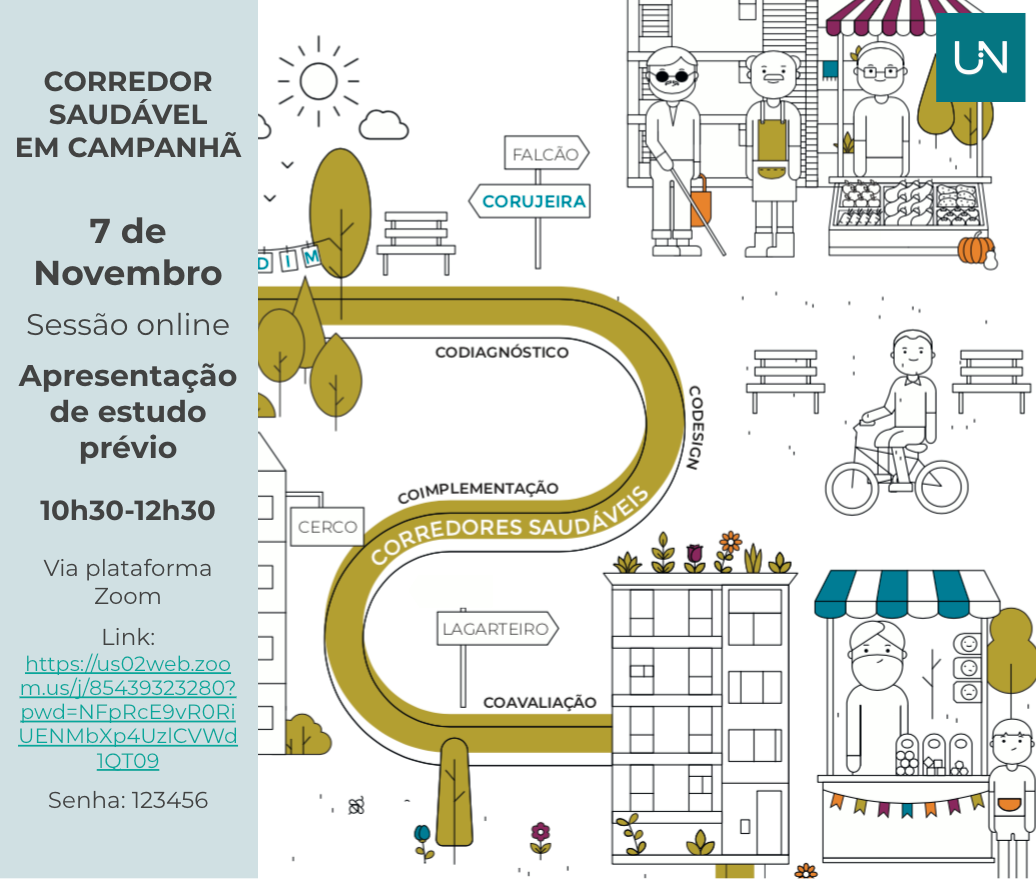
Social media announcement: online presentation and discussion of the healthy corridor preliminary version, in November 2020.
Mental health is another issue requiring attention, to provide diversified and adequate responses in different situations, such as domestic violence, drug addiction or homelessness. New mental problems have arisen with the pandemic and so new interventions are needed. For example, older adults living in care homes or who are isolated have mental health problems that are not being assessed.
The pandemic imposed the urgent need for networked interventions while the collective mobilization with differentiated responses showed us how we can make a difference in people’s lives. Now we need to rethink our current model of the welfare state and be able to quickly adapt our capacity and services to this new reality. We need to have the courage to end some things and formally create others, and to think beyond providing the basics, ensuring that all citizens have access to full citizenship. The alternative future needs to be one that is more suited to the society in which we live.

Tackling the pandemic’s second wave with the population, through awareness raising and engagement (https://www.porto.pt/en/news/porto-city-hall-muppie-campaign-on-covid-19-is-distinguished-by-the-graphis)

Tackling the pandemic’s second wave with the population, through awareness raising and engagement (https://www.porto.pt/en/news/porto-city-hall-muppie-campaign-on-covid-19-is-distinguished-by-the-graphis)
This blogpost was elaborated by Rita Campos (CES-UC), based on the interview of Cláudia Costa (Municipality of Porto) conducted by Nathalie Nunes and Lúcia Fernandes ( CES-UC), in the frame of task 1.5 (inclusion of cross-cutting dimensions human rights and gender) and its corresponding deliverable D1.8 (compilation and analysis of human rights and gender issues) to be released in 2021. The text was reviewed by Tom Mackenzie (ITEMS).
Comments welcome!
Do you live or work in Porto? We would love to hear from you!
Did you feel the challenges described above? What lessons did you learn? What would you like to add to this picture?
Do you live or work in another city? We would love to hear from you also! How would you describe the challenges and opportunities that emerged with the pandemic in your city? Were/Are they similar to those in Porto?


